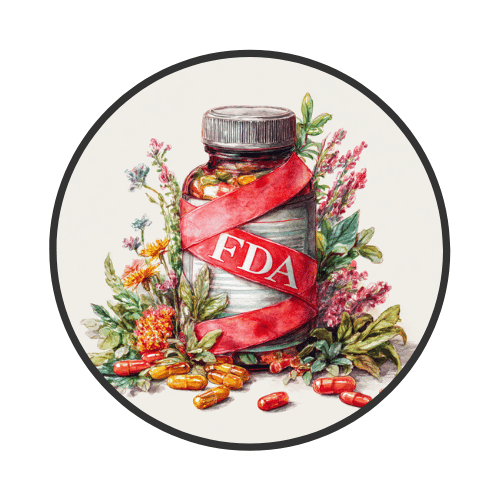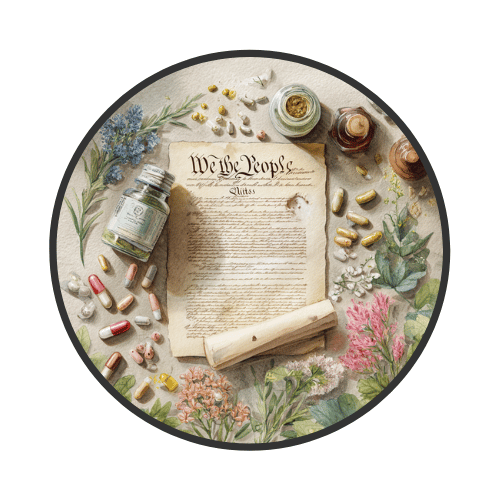On February 7, 2023, Dr. Cara Welch, Director of the Office of Dietary Supplement Programs, outlined why the FDA wants a new mandatory product listing (MPL) database. She makes the following arguments:
- The market has changed, or at least grown, since the Dietary Supplement Health and Education Act (DSHEA) was passed in 1993.
- The FDA has “no systematic way of knowing what products are on the market, when new products are introduced, or what they contain.”
- MPL would help the FDA identify illegally imported products at the border.
- MPL would help consumers tell responsible (compliant) products from rogue ones.
These arguments are not compelling. It does not follow that new legislation or regulation is needed because the market has grown. Why change DSHEA just because more people are using more supplements today? This growth indicates that market forces are working and consumer demand is being met. Government shouldn’t interfere without strong reasons.
Why does FDA think it needs to know about every product in the marketplace? Pre-market approval (PMA) gives FDA that kind of control over pharmaceuticals, but PMA is certainly no panacea. FDA has neither PMA nor MPL for food ($996bn) and beverages ($88bn), though together, these markets are much bigger than either drugs ($534bn) or supplements ($52bn). Does the FDA need to know about every new item on a grocery store shelf or restaurant menu? The FDA’s MPL request is just more evidence that, after clear correction from both Congress and the American people and 30 years of favorable experience under DSHEA), the FDA still thinks supplements should be regulated like drugs, not food.
Dr. Welch says that MPL would help identify illegal products at the border, but doesn’t say how. Shipping manifests already say what products are being shipped, labels can be inspected, and products or ingredients tested as needed. MPL won’t stop or reduce shipments of substandard, spiked, or illegal goods. Requiring industry-wide MPL to facilitate border inspections is like requiring all citizens to register and “show their papers” whenever requested to discourage illegal immigration. It’s the tail wagging the dog, and free societies (or markets) don’t work that way.
Finally, Dr. Welch argues MPL would separate good from bad actors in the marketplace. How? Good guys make products that work; bad guys make products that don’t work, or worse yet, that hurt people. Having an MPL listing doesn’t make you a good guy any more than wearing a white hat in a Western movie makes you a good guy. If mere compliance marks good guys, let’s just pin a gold star on every FDA-registered food facility. How many consumers are searching that list to guide their choices?
Serious Adverse Events (required since 2006) make products that hurt people easy to spot. Meanwhile, market forces and reputation are sufficient to separate products that work from products that don’t - especially in the age of Internet reviews and ratings. The FDA should focus on eliminating harmful products rather than enforcing their interpretation of so-called “drug claims.”
Dr. Welch views MPL as part of a “modern, risk-based regulatory approach.” It is not. Risk-based regulation (as the name implies) targets areas with the most risk and reduces regulatory burden in areas with less risk. Instead, MPL burdens every brand owner or manufacturer (an area that poses little risk) in exchange for a vague suggestion that this will somehow help the FDA do its job better at the border. Border enforcement is a high-risk area, but one best controlled by importers or import-specific regulations if needed. If the FDA can’t find and target risks without new industry-wide requirements, it’s not looking in the right places.
Dr. Welch suggests that the industry’s concerns about FDA motives are exaggerated. They are not. In the years before DSHEA, in a string of events known as the “Black Currant Oil cases,” the FDA took the position that dietary supplements were neither foods nor “generally recognized as safe” food additives (neither of which needed prior FDA approval). The FDA instead concluded that supplements were unlawful new drugs, so they confiscated supplements and prosecuted their makers all the way to the Supreme Court. The result was the most significant public letter-writing campaign to Congress since the Vietnam war and the overwhelmingly bi-partisan passage of DSHEA in 1993. DSHEA was very clear that the FDA should NOT approve new dietary ingredients or structure/function claims for dietary supplements.
Since DSHEA, the FDA has engaged in a similar pattern. We all know that “an apple a day keeps the doctor away,” but when cherry growers truthfully said that cherries could also help prevent disease, the FDA cited them for selling “unapproved new drugs.” the FDA declared that N-Acetyl-Cysteine (NAC) was a drug, although it had been widely sold as a supplement for years. CBD recently got a similar treatment, as did NMN. Kratom, a popular herbal pain medicine in other countries, has been confiscated. Herbal drugs are allowed only if they follow existing FDA monographs (which are very few). Herbal teas can be used as a digestive, but not for a common cold or flu, a sore throat, or high blood pressure, no matter how effective they may be. The FDA can’t decide whether pain and inflammation are allowed structure/function claims or drug claims about disease symptoms. Homeopathy is under attack, though it’s been legal in the US since before the FDA was born and poses little if any, health risks. Marijuana is still federally prohibited, though it’s now allowed medically in 39 states (now fully legalized in 23). Despite clear evidence to the contrary, the FDA’s most consistent position is this: only the FDA knows what’s best for consumers.
Do we want supplements to follow the failed PMA drug model, with its costs, delays, monopolies, orphans, fraud, abuses, and outrageous prices? No! The FDA’s role in supplements should be limited, just as DSHEA intended. FDA regulatory “creep” should be confronted, and vigorously resisted. Absent better arguments than we’ve seen so far, MPL is just not warranted.






